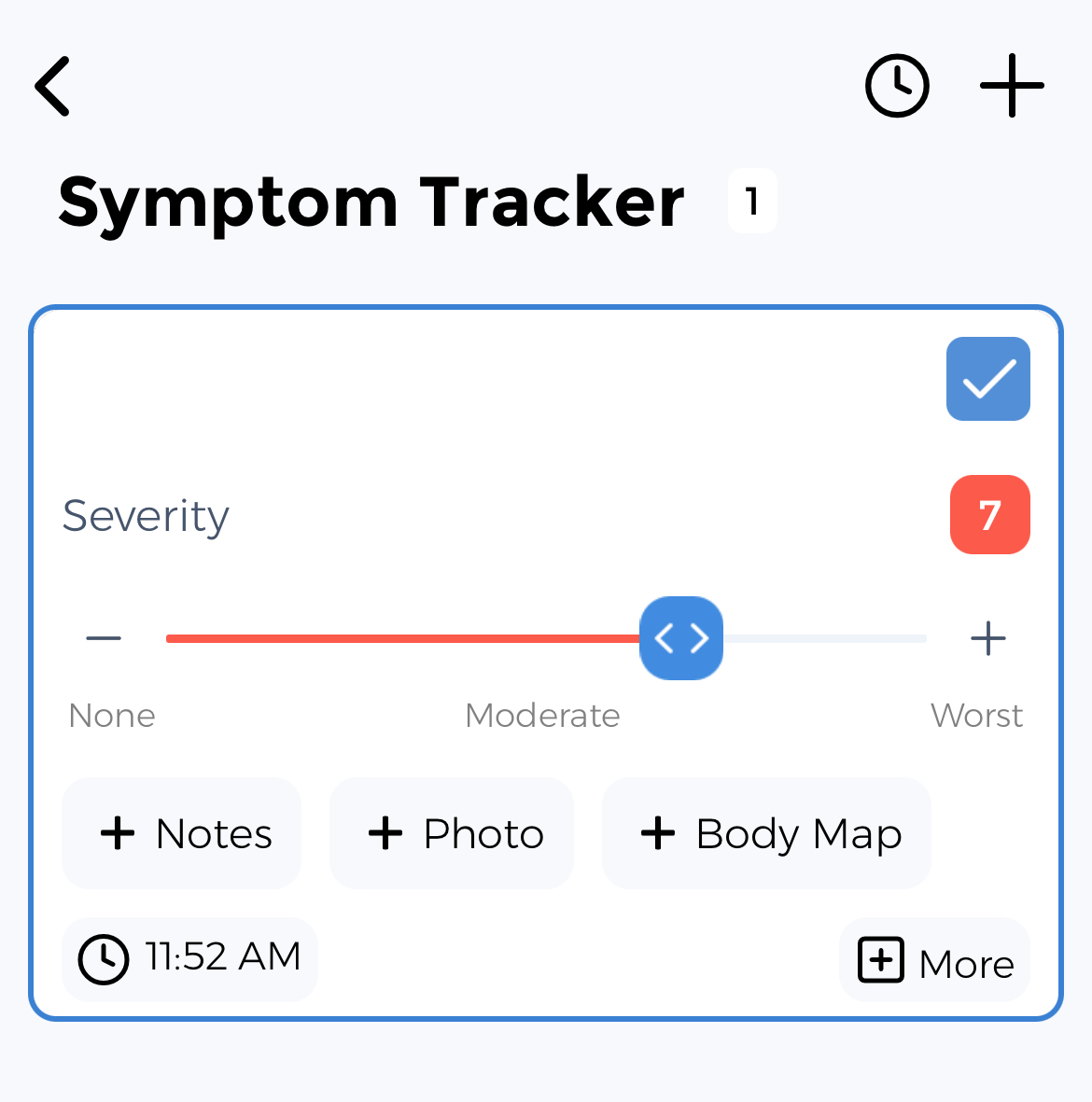Hashimoto's Thyroiditis Symptom Tracker: Your Health Assistant
Living with Hashimoto's Thyroiditis means dealing with fatigue, weight gain, cold intolerance, and more. But here's the truth: Data is your most powerful tool. Every logged symptom reveals patterns—so you can take informed action.
Hashimoto's thyroiditis is an autoimmune condition in which the immune system attacks the thyroid gland, leading to chronic inflammation and reduced thyroid function. Tracking symptoms helps manage medication dosage and identify triggers for symptom flares.
Key Hashimotos Thyroiditis Symptoms You Should Track
Struggling with symptoms like these? Tracking them reveals patterns, triggers, and how they impact your daily life.
Fatigue
Weight gain
Cold intolerance
Joint and muscle pain
Dry skin
Hair loss
Depression
Impaired memory
Irregular or heavy menstrual periods
Constipation
Track Your Hashimoto's Thyroiditis Treatments
Tracking how these common treatments affect your symptoms can help you and your healthcare provider optimize your care plan:
Our tracker helps you monitor when you take medications and how they affect your symptoms over time.
Standardized Hashimoto's Thyroiditis Assessments
Complete these evidence-based assessments in the App to measure your severity and monitor your progress:
⚡ Knowledge Is Your Superpower
The difference between feeling overwhelmed by Hashimoto's Thyroiditis and feeling in control starts with data. When you track your symptoms, you transform uncertainty into clarity. Every data point brings you closer to understanding your unique patterns.
It's free to try for anyone—whether you're managing your own condition, supporting a child, helping an aging parent, or assisting a partner. Our tracker adapts to your specific role in the health journey.
How the CareClinic Hashimotos Thyroiditis Symptom Tracker Adapts to Your Needs
Adults
Caregivers
Parents of Children
Young Adults
Your Complete Hashimoto's Thyroiditis Management Toolkit
Uncover Patterns & Insights
Map your Hashimotos Thyroiditis symptoms like a detective solving a case.
Understand Your Medication's Impact
Turn guesswork into strategy. See how treatments affect your well-being with clear health insights.
Objectively Measure Your Progress
Use clinically validated tools to objectively measure your progress.
Other Tools You May Like...
Plus 2 more specialized tracking tools available
Access All Tracking ToolsAlso Supports Other Conditions Like
Hypothyroidism Tracker
Hypothyroidism warriors use our tracker to monitor fatigue, cold sensitivity.
Graves' Disease Tracker
Graves' Disease warriors use our tracker to monitor anxiety, irritability.
Fibromyalgia Tracker
Fibromyalgia warriors use our tracker to monitor widespread pain, fatigue.
Chronic Fatigue Syndrome Tracker
Chronic Fatigue Syndrome warriors use our tracker to monitor extreme fatigue, post-exertional malaise.
Success Stories from Our Community
"This tracker was my turning point with Hashimoto's Thyroiditis. What I thought was impaired memory was actually related to diet changes. Now I can track the effectiveness of new treatments with confidence."
"This app gave me insights about my Hashimoto's Thyroiditis that even my specialist didn't catch. The severity of my irregular or heavy menstrual periods changed based on my sleep quality, which completely changed my treatment approach."
Take Control of Your Hashimoto's Thyroiditis Journey
Transform from feeling like a passive patient to becoming an informed self-advocate. Join thousands who've discovered new insights about their condition.
Designed by people who understand the daily challenges of managing chronic conditions, we're here to support you and your ❤️ ones.
Download Your Hashimotos Thyroiditis Tracker NowYour Data is Protected
Private & Secure
HIPAA Compliant
GDPR Compliant
Never Sell Data
Your data is yours: You get full control over who can view your information. CareClinic keeps all your data secure and encrypted.
References based on studies by:

